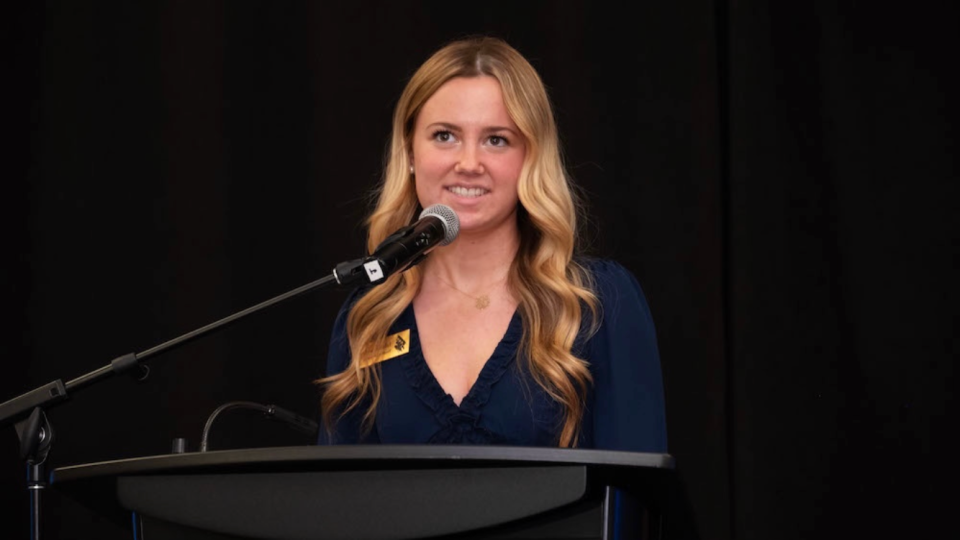Gen Z influencers must be getting old: They're complaining about ‘Sephora kids’
With the start of 2024, it seems as though the time has come for the Baton of Generation Shaming to be passed down from Millennials to Gen Z. Social media platforms, such as TikTok, have become flooded with Generation Z making fun of their younger counterpart, Generation Alpha. The cause of this ageism forged between the 1997 to 2012 age group and the 2013 and beyond age group is the new phenomenon that is tween girls frequenting the beauty retailer Sephora.
Typing the hashtag “#sephorakids” into TikTok’s search engine produces nearly 5,000 videos, most of which are Gen Z creators complaining about elementary-schools aged girls taking over the aisles of Sephora.
These videos come in many shapes and sizes: some are parodies in which the creator mimics a young girl using the products, some are straightforward discussions of the alleged problem, while some are footage of children walking around the store. Most are made by “influencers”: social media users who create content for fans and are often sponsored by brands. Some of the TikToks are uploaded by the “Sephora kids” themselves reviewing the expensive and arguably not age-appropriate products they bought.
According to those complaining, the children are being rude to workers and making a mess of the tester products. For example, while they are in the store, children are creating “smoothies” with skincare products by mixing them together on the unbought packaging. Though Gen Zer’s criticisms go further, and, really, there seems to be jealousy involved. Yes, they’re upset about the inappropriate behavior in a place enjoyed by many, including me, but it seems as though they take offense to these pricey items being seen as less exclusive. The tweens at Sephora splurge on the same makeup and skincare that adults save for with a kind of reckless abandon only available to those with their parent’s credit card in their pocket.
But the influencers making fun of these children are too blind to realize something: they are the problem.
Who gave 10-year-olds the idea to shop at Sephora? The idea that their fresh faces needed these products? Really, who gave anyone of any age the idea that they need the products that these tweens are desperately scavenging the aisles for? The answer is clear. It’s influencers who are selling the need to have all of the trendiest and most expensive products. It’s influencers who are feeding into the capitalism that profits off of women’s insecurities.
Now, it’s certainly not newsworthy to say that internet celebrities influence women to buy things with the implication that they need to look better and the promise that they will look better. TikTok has caused the trend cycle to move at a faster pace than ever; it seems as if there is a new beauty trend every week. And to follow each new trend, influencers expect viewers to purchase brand new clothing and beauty products. The trends have nothing to do with lifestyle and everything to do with owning things.
They are also ridiculous, for example “eclectic grandpa aesthetic” and “clean girl aesthetic” are currently in style. For the “eclectic grandpa” look, think wool sweaters and boxer-style shorts, and for the “clean girl” look, think leggings and the coveted Stanley water bottles (because today style goes beyond outfits, it extends to trendy objects). But what is even more ridiculous is the expectation to keep up with these trends. Again, this is nothing all that new.
What is notable about this situation is the realization that even young girls are being impacted. As a culture, we are letting beauty companies and influencers profit at the expense of allowing young girls to be infected with damaging patriarchal thought. Sure, young girls have always been marketed pink Legos and plastic makeup, but now they’re being seen on TikTok applying $70 retinol cream for the ironic purpose of anti-aging. Not only are they using adult products, but they’re spending their time focused on the adult activity of “influencing”– research shows that the majority of children today aspire to be influencers when they grow up.
The discourse over 10-year-olds at Sephora is clear evidence that children are being exposed to mature content on social media at too young of an age. Women are now learning at an earlier age than ever to tie their self-worth to beauty and consumerism, and it’s sad. The simplest solution to this would be more parental controls on devices. But, that wouldn’t get to the root of the problem. However, when the economy has found a new way to profit off of even more women by making a new age group insecure, it’s doubtful that corporations and influencers will want to change their ways. Especially when those influencers are currently posting TikToks bullying children for falling into the trapdoors of consumerism they have blindly laid out themselves.Tallulah Rector is a student at Vassar College. Email her at rectorlulu@gmail.com

This article originally appeared on Palm Springs Desert Sun: Gen Z influencers must be getting old: They're complaining about ‘Sephora kids’

